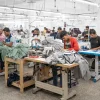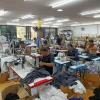Print On Demand
Service Overview
The print-on-demand (POD) model is a business approach where products are created and printed only after a customer places an order. This model eliminates the need for large inventory and upfront investment. Here’s how it works:
1. Customer Order: A customer selects a product (such as a t-shirt, mug, or poster) with a custom design from an online store.
2. Order Processing: Once the customer makes a purchase, the order is sent to a print-on-demand provider.
3. Printing and Fulfillment: The POD provider prints the design onto the selected product and ships it directly to the customer.
4. Profit: The store owner earns the difference between the sale price and the cost of production, while the POD provider handles the production and shipping logistics.
This model is popular for e-commerce businesses, as it requires minimal risk and investment since there’s no need for inventory storage or upfront production costs.
Print on demand benefits..
The print-on-demand (POD) model offers several key benefits for businesses and entrepreneurs:
1. Low Startup Costs: There’s no need for inventory or upfront production costs, making it accessible for those with limited capital.
2. No Inventory Management: Since products are only printed when an order is placed, you don’t have to worry about storing or managing inventory.
3. Scalability: As your business grows, POD services can easily handle increased demand without requiring major changes or investments in operations.
4. Customization: You can offer a wide variety of customizable products, allowing for unique, personalized items that appeal to niche markets.
5. Reduced Risk: With no large orders or unsold inventory, the financial risk is lower compared to traditional retail or wholesale models.
6. Global Reach: Many POD providers offer worldwide shipping, which allows you to sell to a global customer base without worrying about logistics.
7. Automation: Most POD services handle the printing, packing, and shipping, so you can focus on marketing and growing your business without dealing with day-to-day fulfillment.
8. Flexibility: It’s easy to experiment with new designs or products since there’s no need for a large upfront commitment. You can continuously test and refine your offerings.



